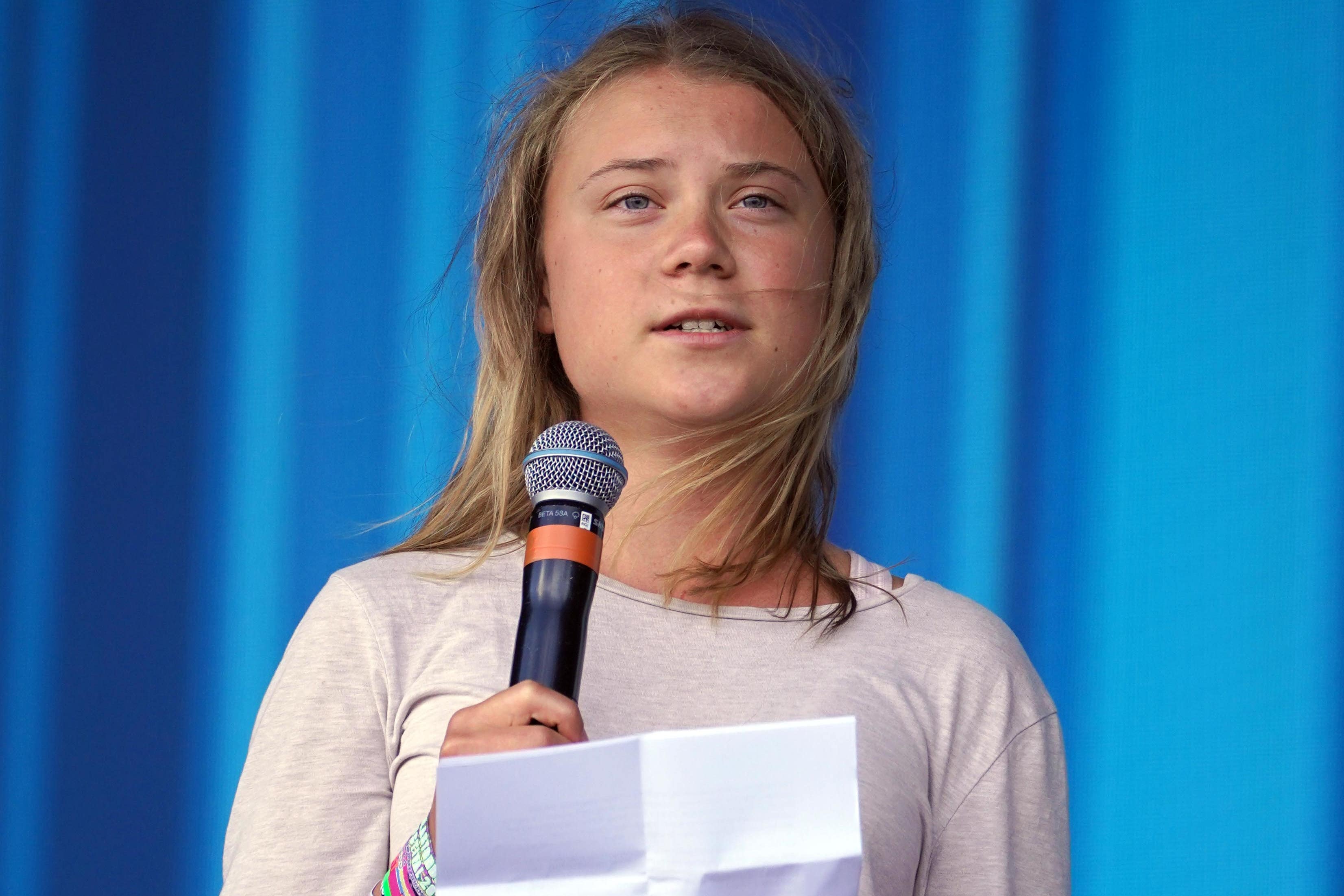Greta Thunberg on how having Asperger’s shapes her approach to climate crisis
The teenage activist gained recognition after she began protesting outside the Swedish parliament building at the age of 15.

Your support helps us to tell the story
From reproductive rights to climate change to Big Tech, The Independent is on the ground when the story is developing. Whether it's investigating the financials of Elon Musk's pro-Trump PAC or producing our latest documentary, 'The A Word', which shines a light on the American women fighting for reproductive rights, we know how important it is to parse out the facts from the messaging.
At such a critical moment in US history, we need reporters on the ground. Your donation allows us to keep sending journalists to speak to both sides of the story.
The Independent is trusted by Americans across the entire political spectrum. And unlike many other quality news outlets, we choose not to lock Americans out of our reporting and analysis with paywalls. We believe quality journalism should be available to everyone, paid for by those who can afford it.
Your support makes all the difference.Greta Thunberg has revealed how being diagnosed with Asperger’s syndrome has shaped her approach to the climate crisis, saying “it’s helped me see through a lot of the bullshit”.
The 19-year-old climate activist gained recognition at the age of 15 when she began spending her Fridays sat outside the Swedish parliament building calling for more serious action on climate change.
Speaking to Elle magazine UK about her activism and the impact suffering from Asperger’s syndrome has had on her work, Ms Thunberg said: “It’s (Asperger’s) helped me see through a lot of the bullshit because they say, ‘Oh yeah, we’re not in line with the Paris Agreement so far, but at least we’re taking small steps in the right direction’.
“Some people might see that as though we’re trying, but I see it as we’re so far away from what we need to be doing for even the bare minimum.”
Ms Thunberg took to the Pyramid Stage at Glastonbury Festival earlier this year to deliver a powerful speech on climate change, during which she called on society to take on its “historic responsibility to set things right” with the global climate crisis.
In a post on Instagram after the event, Glastonbury’s co-organiser Emily Eavis said it was an “honour” to have the environmental activist speak at the festival, describing her speech as “inspiring, powerful and important”.
Ms Thunberg also shared her opinions on the concept of hope, and suggested society work to redefine what it means to be hopeful in the face of the climate crisis, saying “hope means taking action”.
“First thing is, hope for whom? Is it for us?” she said.
“People living in financially fortunate parts of the world who are very much to blame for the climate emergency – maybe not us individuals but us in this part of the world – or hope for those who are actually being affected by the climate crisis?
“I don’t think hope is something that can be given to you, you have to create it yourself. Hope means taking action. I think that we need to redefine hope because it’s being used against us.
“If there is hope you don’t need to do anything, but that is the opposite of hope.”
Later this month at the London Literature Festival, Ms Thunberg is set to launch her new book, The Climate Book, a collection of more than 100 contributions from figures such as economist Kate Raworth, writer and activist Naomi Klein and author Margaret Atwood.
Speaking about one of the key messages from The Climate Book, Ms Thunberg told Elle UK: “One of the key messages is, ‘Don’t listen to me, listen to the scientists, listen to the experts, listen to those who are most affected…’
“I could talk about all these things, but I am a privileged white person who lives in Sweden. I don’t really have any story to tell, so it’s up to others who need to be heard to (talk about) these things.”
The full interview with Greta Thunberg is available in Elle UK, out now.